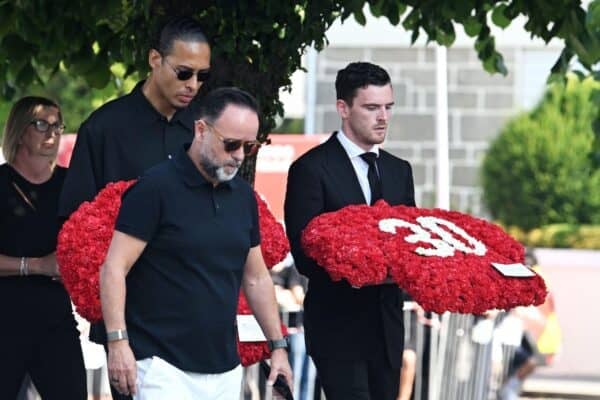Liverpool’s data analysis team is among the most sophisticated in world football, and beyond identifying targets it is also highlighting “pressing victims” on the pitch.
A lengthy, excellent read from The Athletic‘s Adam Crafton on Tuesday detailed the growing influence of data analysis in the modern game, with the Reds a key proponent.
The club have appointed the likes of Dr Ian Graham, an expert in theoretical physics, and Will Spearman, a former nuclear research scientist, as part of the team supporting Michael Edwards.
Graham’s time at Liverpool predates that of Jurgen Klopp, with Fenway Sports Group employing the Cambridge graduate’s algorithm to identify the German as the right candidate to take over from Brendan Rodgers in 2015.
But now he and the club’s data analysts work alongside Klopp in a wide array of duties that includes recruitment and tactical preparation.
Crafton spoke to a ‘Liverpool source’ who explained how the Reds are using data to highlight key areas to exploit on the pitch, including the pinpointing of “pressing victims.”
“These guys are phenomenal. I wouldn’t like to play chess against them,” they explain.
“One of the impressive things: they can work out the speed at which the opponent moves and controls the ball.
“From there, we can identify pressing ‘victims’ and tell our players to apply pressure to specific opponents.”

With Klopp heavily reliant on a pressing game, this will undoubtedly benefit their approach to games, with Naby Keita‘s goal in the first minute of last year’s 5-0 thrashing of Huddersfield a prime example of this.
Huddersfield goalkeeper Jonas Lossl played the ball out to Christopher Schindler soon after kickoff, and before the centre-back could turn and play the pass he was swarmed by Keita and Daniel Sturridge.
The ball ended up with Mohamed Salah, who played it quickly for Keita to fire home past Lossl for a 1-0 lead; Schindler was, effectively, the victim.
Elsewhere, Crafton notes that this analytical view is married with a more traditional eye test, detailing how a scout spotted Brighton‘s tendency to jump at every direct free-kick, which prompted Philippe Coutinho‘s under-the-wall goal in 2017.
This is, in its essence, why Liverpool have proved so successful, with numbers not the be all and end all, but clearly a hugely important part of their planning.
To boil down Crafton’s piece into 400 words would do it a disservice, and it is certainly worth reading in its entirely, with the work of the likes of Graham and Spearman covered in invaluable detail.

















Fan Comments